Chickens, those endearing feathered creatures that have long been a staple on farms and increasingly found in urban backyards, are renowned for their vocal nature. Their boisterous clucks, cackles, and the unmistakable crow of roosters have led to the common perception that chickens are noisy. While this reputation holds some truth, it’s essential to recognize that various factors influence the volume and frequency of their vocalizations. Breed, age, and the environment in which they reside all play pivotal roles in determining how loud our fine-feathered friends can be.
In this article, we delve into “are chickens loud”.
The Natural Tendencies of Chickens
As social and highly communicative creatures, Chickens possess natural instincts that involve vocalization as a vital part of their communication repertoire. They express various emotions through various sounds and convey crucial information within their flock.
Clucking, a soft and rhythmic sound, is perhaps the most common form of chicken vocalization. Hens often cluck to communicate contentment, call their chicks to safety, or signal the discovery of food sources. It’s a gentle sound that fosters a sense of reassurance among the flock.
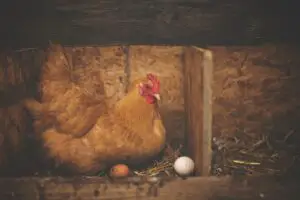

Conversely, cackling is a more energetic and enthusiastic sound emitted by hens after laying an egg. It serves as a triumphant announcement of their accomplishment, almost like sharing the joy of their achievement with the rest of the group.
The crowing of roosters is undoubtedly the most recognizable and often the loudest of chicken sounds. Roosters crow to assert their dominance and establish their territory within the flock. Additionally, crowing plays a crucial role in attracting potential mates. It’s their way of declaring to other roosters that they are present and ready to defend their position as the group leader.
Due to these distinct crowing behaviors, roosters are generally louder than hens, with more understated vocalizations. While hens communicate with clucks and cackles, roosters use crowing to boldly proclaim their authority, ensuring harmony within the flock and maintaining a pecking order.
Factors Influencing Chicken Noise
The volume and frequency of chicken noise can be influenced by various factors, ranging from their genetic disposition to the conditions of their environment. Understanding these factors is essential for managing and fostering a peaceful living environment for the chickens and their human caretakers.
1. Breed of Chickens:
Different chicken breeds have distinct vocal habits, some inherently quieter than others. For example, certain heritage and bantam breeds are known for their calm demeanor and less vocal tendencies. On the other hand, some breeds, particularly those bred for meat production or aggressive behavior, can be more vocal. Chicken owners can mitigate potential disturbances by choosing the appropriate breed based on the noise levels that align with their living situation.
2. Age of Chickens:
Age plays a role in chicken noise levels as well. Young chicks are generally more vocal during their early stages of development. This is natural as they explore their surroundings, seek warmth and comfort, and learn to communicate with their fellow chicks and mother hen. Most chickens tend to settle into a more consistent and balanced vocal pattern as they mature.
3. Environmental Factors:
The environment in which chickens are kept can significantly influence their noise levels. Crowding is one of the most common environmental factors leading to increased vocalizations. Overcrowded coops or runs can cause stress and tension among the flock, leading to more frequent and intense vocalizations as they establish their social hierarchy.
Stress is another trigger for chicken noise. Sudden changes, disturbances, or exposure to predators can create bird anxiety, prompting them to vocalize as an alarm response.
Additionally, disruptions in their usual routine, such as changes in feeding or watering schedules, can also lead to temporary spikes in noise levels as the chickens adapt to the new situation.
Understanding the Reasons Behind Chicken Vocalizations
Chickens are far from just noisy creatures; their vocalizations serve as a sophisticated language, expressing a range of emotions and conveying crucial messages within their flock. Let’s delve into the intriguing reasons behind their various vocal habits:
1. Expressing Hunger and Food Discovery:
Clucking is gentle and rhythmic sound hens use to express contentment and call their chicks to safety. However, it also serves as a means of communication when hungry or discovering food. By clicking with a slightly different tone, hens convey excitement over a newfound food source, prompting the rest of the flock to join the feast.
2. Roosters Establishing Territory and Attracting Mates:
The crow of a rooster is a defining characteristic of their vocal repertoire. Beyond being an early morning wake-up call, crowing is primarily a way for roosters to establish their territory and assert dominance within the flock. By crowing loudly and consistently, roosters signal their presence and authority, maintaining a stable social hierarchy. Moreover, crowing also plays a crucial role in attracting potential mates. A strong and confident crow can appeal to hens, increasing the rooster’s chances of passing its genes to the next generation.
3. Hens Signaling Egg Laying Accomplishment:
After successfully laying an egg, hens express joy and satisfaction through a unique vocalization called cackling. This enthusiastic and celebratory sound is how they announce their accomplishment to the rest of the flock. It’s a fascinating display of pride and a bonding moment among the hens, reaffirming their social ties.
Managing Chicken Noise in Urban and Suburban Settings
Raising chickens in urban or suburban environments comes with the responsibility of being considerate neighbors while still enjoying the pleasures of backyard poultry. Here are some tips to minimize chicken noise disturbances and maintain harmony within your community:
1. Choose Quieter Breeds:
When selecting chicken breeds for your backyard flock, opt for quieter and calmer breeds known for their less vocal tendencies. Research and consult with experienced chicken owners to find breeds better suited for noise-sensitive environments.
2. Establish Quiet Hours:
Implement designated quiet hours for your chickens, particularly during early mornings and late evenings when noise can be most disruptive to neighbors. Encourage your chickens to remain calm by ensuring their needs, such as feeding and watering, are met in advance.
3. Reduce Rooster Crowing:
Consider keeping only hens and omitting roosters for urban and suburban areas. If you wish to keep a rooster, house it in a darkened coop during the early morning hours. The reduced light can help delay the rooster’s instinct to crow at sunrise, minimizing disturbances to those still enjoying their sleep.
4. Provide Sufficient Space and Enrichments:
Ensure your chickens have ample space to roam and forage, as overcrowding can increase stress and vocalizations. A spacious and enriching environment will keep the chickens content and less likely to exhibit noisy behaviors.
5. Manage Stress Levels:
Maintain a calm and stress-free environment for your chickens by minimizing sudden changes and disturbances. Protect them from potential predators, loud noises, or other stress-inducing factors that can trigger excessive vocalizations.
6. Establish Barriers:
Consider using natural barriers, such as shrubs or fencing, to create a buffer zone between your chicken coop and neighboring properties. These barriers can help muffle sounds and provide privacy for your chickens and neighbors.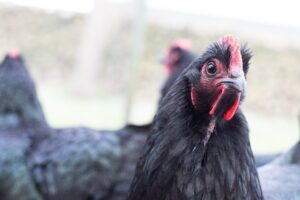

7. Engage in Regular Interaction:
Spending time with your chickens and giving them attention and care can reduce anxiety and minimize noisy behaviors. Chickens are social animals, and interacting with them positively can promote a sense of security and contentment.
Considerations for Choosing Chicken Breeds
Selecting the right chicken breeds ensures a peaceful and enjoyable backyard chicken-keeping experience, especially in noise-sensitive environments. Here’s some guidance to help prospective chicken owners choose quieter and calmer breeds for their flock:
1. Research Breeds Known for Quietness:
Before choosing chicken breeds, conduct thorough research to identify those known for their calm and quiet nature. Look for breeds that have a reputation for being less vocal, as this will significantly reduce the chances of noise disturbances in urban or suburban settings.
2. Consult with Local Chicken Owners:
Contact local chicken owners or poultry groups to gather insights from experienced keepers about breeds well-suited for noise-sensitive environments.
3. Avoid Keeping Roosters:
If noise is a primary concern, consider keeping an all-hen flock and avoid having roosters altogether. Hens are generally quieter than roosters, as they lack the territorial crowing behavior that can be disruptive, particularly in urban areas.
4. Consider Bantam Breeds:
Bantam chickens, smaller versions of standard breeds, are often quieter and more docile. They are suitable for smaller backyard spaces and are less likely to create noise disturbances.
5. Opt for Heritage Breeds:
Heritage breeds are traditional and time-tested chicken varieties known for their calm demeanor and gentler vocal habits. These breeds tend to be hardy and well-adapted to a backyard setting.
6. Evaluate Your Space and Lifestyle:
Consider your available space, coop size, and the time you can dedicate to chicken care. Some breeds may require more attention and interaction to stay content and quiet, while others can thrive with less human intervention.
7. Assess Climate Suitability: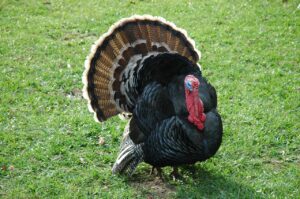

Keep in mind the climate of your region when choosing chicken breeds. Opt for breeds well-suited to the local weather conditions, as comfortable chickens are generally quieter.
Are chickens loud
In conclusion, understanding chicken vocalizations and the factors influencing their noise levels is key to responsible chicken ownership. While chickens can be loud, proper care and attention can effectively manage their noise. Selecting quieter breeds, avoiding roosters, and providing a stress-free environment will create a harmonious backyard experience for the chickens and their human neighbors. Let’s embrace the joys of raising chickens while being considerate to those around us.


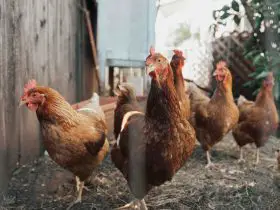

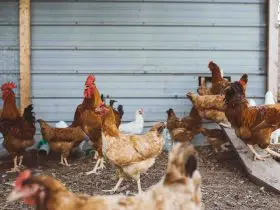
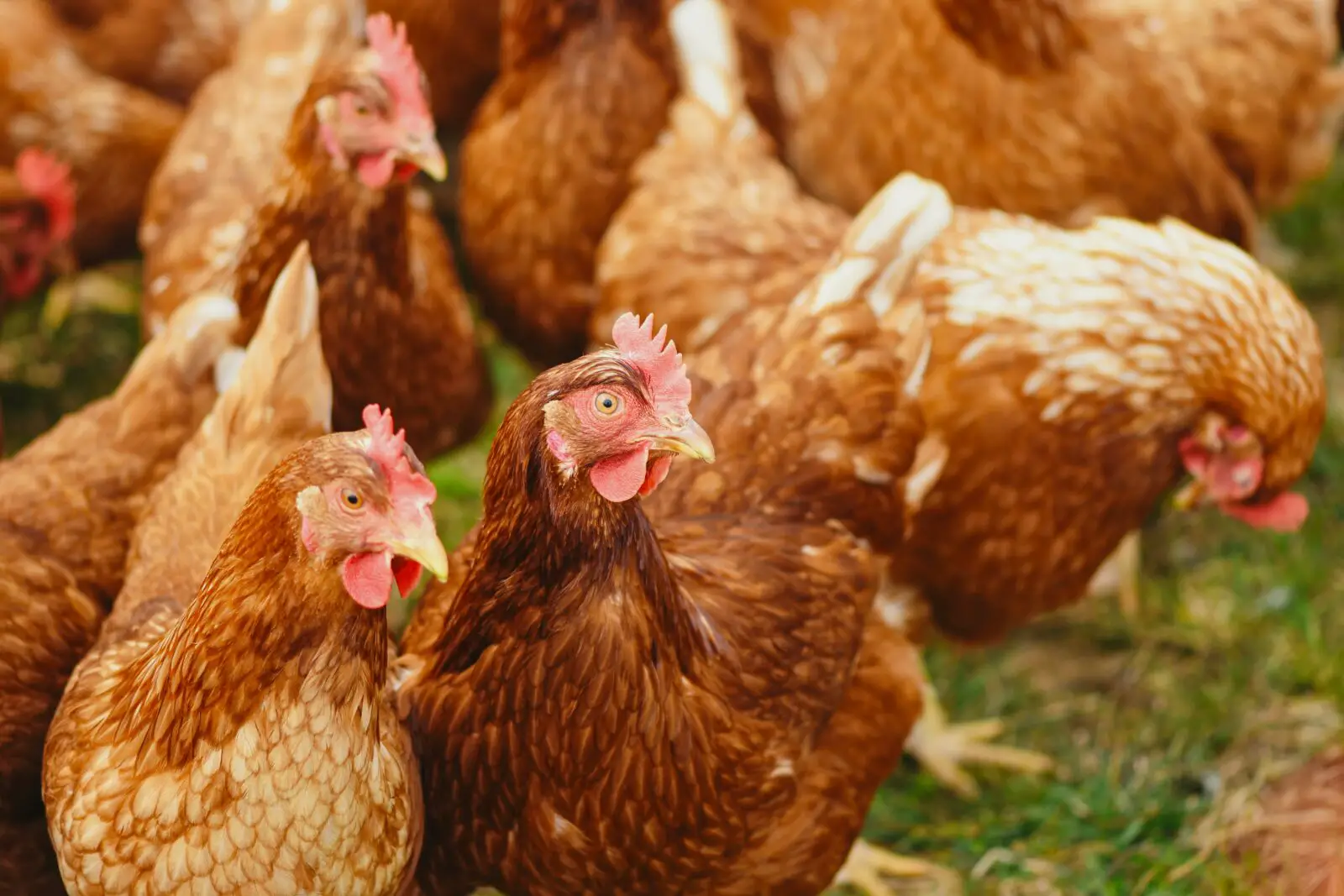


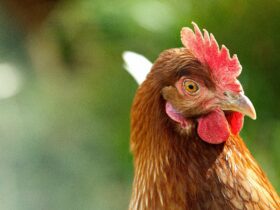

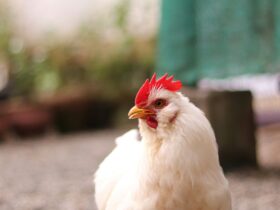

Hello!! Welcome to Anim Farm